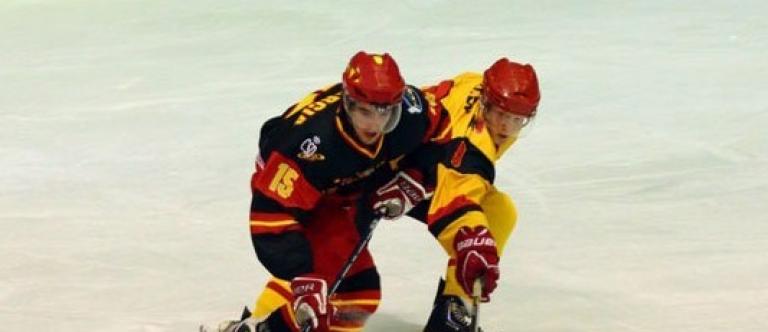
Sentencia del Tribunal de Justicia de 26 de marzo de 2015, C More Entertainment (C-279/13)
1. HECHOS.
C More Entertaiment es una compañía de capital noruego que, entre otras emisiones de carácter deportivo, retransmite por internet partidos de hockey sobre hielo a sus abonados. El Sr. Sandberg, de nacionalidad sueca, incluyó en una página web enlaces a través de los cuales los internautas podían acceder al visionado de dichos partidos eludiendo el pago de cantidad alguna.
La negativa del Sr. Sandberg a suprimir esos enlaces dio lugar a un procedimiento penal por infracción de derechos de autor ante la jurisdicción sueca que dio lugar a una primera sentencia condenatoria al pago de multa y abono de una indemnización. En segunda instancia el tribunal penal sueco rectificó la primera resolución, entendiendo que las emisiones no tenían la originalidad necesaria para merecer protección por derechos de autor. La resolución sostuvo, sin embargo la condena al entender que las emisiones estaban protegidas por los derechos afines a la propiedad intelectual que corresponden al organismo radiodifusor.
El asunto alcanzó el Tribunal Supremo sueco quien decidió plantear varias cuestiones que tenían que ver con la consideración del enlace como acto de comunicación pública, pero fueron retiradas a la luz de la Sentencia Svensson (C-466/12). Se mantuvo únicamente una cuestión prejudicial en la que el Tribunal pedía a la Corte europea que determinara si los Estados miembros pueden “otorgar al titular de derechos de propiedad intelectual un derecho exclusivo más amplio [… ] que los derivados del artículo 3, apartado 2 de la Directiva 2001/29”.
2. PRONUNCIAMIENTOS.
El Tribunal manifiesta que su interpretación va a estar guiada por las finalidades que justifican la armonización en materia de propiedad intelectual. En este sentido la Sentencia afirma que el objetivo de crear un mercado interior que opere con las reglas de la libre competencia exige que el derecho de autor se adapte y complete en la medida necesaria para lograr esa finalidad. Por ello, el Tribunal entiende que deberán reajustarse las diferencias de protección jurídica de las legislaciones nacionales que “dificulten el correcto funcionamiento del mercado interior y el adecuado desarrollo de la sociedad de la información en Europa”. Esto es, si los problemas señalados no se producen, el Tribunal entiende que opera la libertad regulatoria de los Estados miembros, puesto que la Directiva “no tiene como finalidad suprimir o evitar aquellas diferencias entre normativas nacionales que no repercutan negativamente en el funcionamiento del mercado interior”.
En el caso concreto enjuiciado, la conclusión expuesta conlleva el reconocimiento de que el Estado sueco puede conceder a las emisiones de los organismos de radiodifusión una protección más ampliada sobre sus emisiones que la que deriva estrictamente de los mandatos de la norma comunitaria.
3. COMENTARIO.
La Sentencia examina el grado de armonización que exigen la Directiva 2001/29 y la Directiva 2006/115 que sustituye a la 92/100 sobre alquiler y préstamo. En su opinión, la Directiva de la sociedad de la información no pretende evitar o suprimir diferencias si se refieren a actos que no han sido regulados por lo que habrá que entender que no deja margen en aquellos que han sido objeto de regulación. Y la Directiva 2006/115, sin embargo, permite que los Estados miembros puedan ampliar la protección concedida a los titulares de derechos, indicando que, en relación con los derechos afines, estas ampliaciones tienen su límite en que resulte afectada la protección otorgada a los derechos de autor.
Documento citado:
- Sentencia del Tribunal de Justicia de 26 de marzo de 2015, C More Entertainment (C-279/13), EDJ 2015/31323.
ENGLISH VERSION
National legislation that extends the intellectual property rights provided for in the Community Directives.
Judgment of the Court of Justice of 26 March 2015, C More Entertainment (C-279/13).
1. BACKGROUND.
L C More Entertainment is a Norwegian capital company which broadcasts ice hockey matches, among other sports events, to its subscribers on its Internet site. Mr. Sandberg, a Swedish national, created links on his website through which Internet users could access the live broadcasts of those matches for free. Mr. Sandberg’s refusal to remove those links prompted criminal proceedings for copyright infringement in Sweden, which resulted in a fine and damages award against the defendant. In the second instance, the Swedish criminal court amended the initial decision on the grounds that the broadcasts did not reach the level of originality required for copyright protection. It nevertheless upheld the fine and damages award since it considered that the broadcasts were protected by copyright-related rights held by the broadcasting organisation. The case went to the Swedish Supreme Court, which decided to refer a number of questions, relating to classification of the link as an act of communication to the public, to the CJ. All but one of those questions were withdrawn in light of the Svensson judgment (C-466/12). The E L Z A B U R U 40 remaining question referred to the CJ for a preliminary ruling concerned whether the Member States could “give wider protection to the exclusive right of authors […] than provided for in Article 3(2) of Directive 2001/29”.
2. FINDINGS.
The Court stated that its interpretation must be guided by the objectives justifying harmonisation in respect of copyright. In that regard, the judgment confirmed that the objective of creating an internal market that operates under the rules of free competition calls for copyright to be adapted and completed as far as is necessary in order to achieve that goal. Consequently, the Court understood that it would be necessary to readjust any differences in the legal protection provided for in the national legislations that hindered “the smooth functioning of the internal market and the proper development of the information society in Europe”. In other words, if the problems in question do not arise, the Court believes that the Member States’ should enjoy regulatory freedom, given that “the objective of that directive is not to remove or prevent differences between the national legislations which do not adversely affect the functioning of the internal market”. In this specific case, the CJ’s conclusion implies that Sweden may confer wider protection on broadcasts transmitted by broadcasting organisations than that strictly provided for in EU law.
3. REMARKS.
This judgment examines the degree of harmonisation required by Directive 2001/29 and Directive 2006/115, which replaces Directive 92/100 on rental and lending rights. In the Court’s opinion, the Information Society Directive is not trying to prevent or remove differences if they refer to acts that have not been regulated. It must therefore be understood that there is no margin in respect of acts that have been regulated. Nevertheless, Directive 2006/115 enables the Member States to extend the protection conferred on rightholders provided that, with respect to related rights, such an extension does not undermine the protection of copyright.
ElDerecho.com no comparte necesariamente ni se responsabiliza de las opiniones expresadas por los autores o colaboradores de esta publicación








